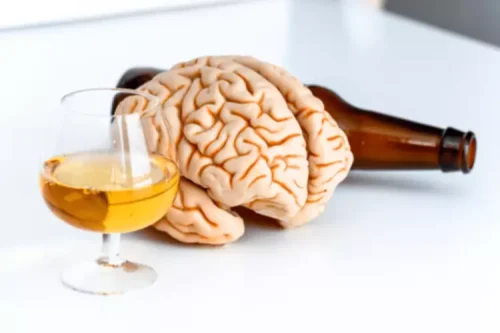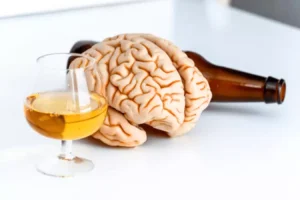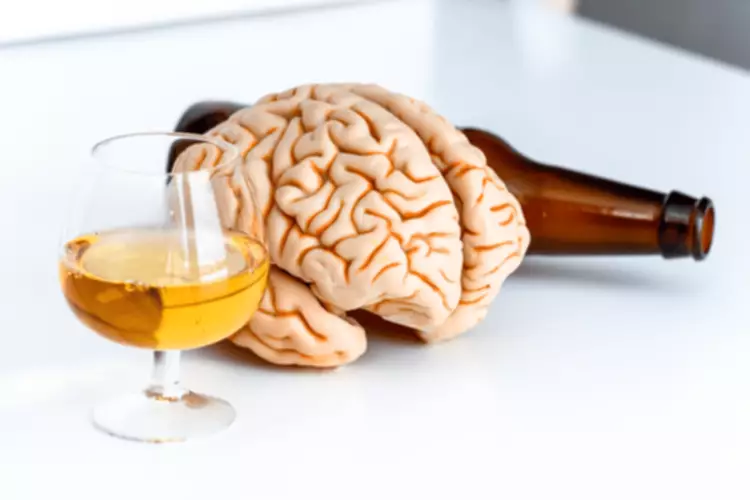
Alcohol use suppresses the central nervous system and destroys neurons. This can lead to conditions like stroke, amyotrophic lateral sclerosis (ALS), Alzheimer’s disease, and multiple sclerosis (MS). A comprehensive 2015 review found that alcohol use is one of the leading contributors to pancreatitis because it causes the pancreas to produce toxic substances. The pancreas is essential for breaking down enzymes and starches (like those in alcohol). When the pancreas becomes irritated and inflamed, you can develop pancreatitis. A .gov website belongs to an official government organization in the United States.

Restricting digital marketing in the context of tobacco, alcohol, food and beverages, and breast-milk…
People who binge drink or drink heavily may notice more health effects sooner, but alcohol also poses some risks for people who drink in moderation. If you feel that you sometimes drink too much alcohol, or your drinking is causing problems, or if your family is concerned about your drinking, talk with your health care provider. Other ways to get help include talking with a mental health professional or seeking help from a support group such as Alcoholics Anonymous or a similar type of self-help group.
Long-term effects of alcohol misuse
- They’re also more likely to experience social, academic, and legal issues.
- Alcohol is the most widely consumed drug among young people in Western countries.
- The evaluation consists of 11 yes or no questions that are intended to be used as an informational tool to assess the severity and probability of a substance use disorder.
- Alcohol use can damage the hippocampus, the part of your brain responsible for memory and learning.
- Know the danger signals, and if you suspect that someone has an alcohol overdose, call 911 for help immediately.
- Alcohol is a powerful chemical that can have a wide range of adverse effects on almost every part of your body, including your brain, bones and heart.
- A BAC of 0.09% to 0.25% causes lethargy, sedation, balance problems and blurred vision.
The excess amount of alcohol in your system can also upset your digestion, leading to symptoms of nausea, vomiting, diarrhoea and indigestion. In addition to getting professional treatment and support, there are things that you can do to help feel better and improve your chances of recovery. John C. Umhau, MD, MPH, CPE is board-certified in addiction medicine and preventative medicine. For over 20 years Dr. Umhau was a senior clinical investigator at the National Institute on Alcohol Abuse and Alcoholism of the National Institutes of Health (NIH). Alcohol also causes damage to nerves and pathways, which disrupts communication between essential organs and bodily functions.
Deaths from excessive alcohol use

A BAC from 0.35% to 0.80% causes a coma (unconsciousness), life-threatening respiratory depression and possibly fatal alcohol poisoning. With all alcoholic beverages, drinking while driving, operating an aircraft or heavy machinery increases the risk of an accident; many countries have penalties for drunk driving. An alcohol overdose occurs when there is so much alcohol in the bloodstream that areas of the brain controlling basic life-support functions—such as breathing, heart rate, and temperature control—begin to shut down. The liver metabolizes most of the alcohol you consume, breaking it down into acetaldehyde. Acetaldehyde is a toxin that can damage the body’s organs and tissues before it is further broken down into acetate. Years of moderate to heavy drinking can cause liver scarring (fibrosis), increasing the risk of liver diseases like cirrhosis, alcoholic hepatitis, fatty liver disease, and liver cancer.
Alcohol poisoning: what to do
This means a person’s alcohol withdrawal programme needs to be carefully planned, with close monitoring of its effects. Heavy drinking can also increase your blood pressure and blood cholesterol levels, both of which are major risk factors for heart attacks and strokes. Many people who seek treatment are able to overcome the addiction. A strong support system is helpful for making a complete recovery. Symptoms of alcohol use disorder are based on the behaviors and physical outcomes that occur as a result Why Alcoholism is Considered a Chronic Disease of alcohol addiction.
Alcohol-induced mental health conditions

After drinking 10 to 12 units of alcohol, your co-ordination will be highly impaired, placing you at serious risk of having an accident. The high level of alcohol has a depressant effect on both your mind and body, which makes you drowsy. Some people may drink alcohol to the point that it causes problems, but they’re not physically dependent on alcohol. Alcoholism, referred to as alcohol use disorder, occurs when someone drinks so much that their body eventually becomes dependent on or addicted to alcohol. Treatment for alcoholism often involves a combination of therapy, medication, and support.
About Mayo Clinic
We strive to create content that is clear, concise, and easy to understand. Seizures, hallucinations, and delirium may occur in severe cases of withdrawal. A weakened immune system has a harder time protecting you from germs and viruses. Experts recommend avoiding excessive amounts of alcohol if you have diabetes or hypoglycemia. Drinking too much alcohol over time may cause inflammation of the pancreas, resulting in pancreatitis. Pancreatitis can activate the release of pancreatic digestive enzymes and cause abdominal pain.
Mental Health and Psychological Effects

Many people assume the occasional beer or glass of wine at mealtimes or special occasions doesn’t pose much cause for concern. But drinking any amount of alcohol can potentially lead to unwanted health consequences. Excessive and long-term alcohol use can cause many health complications, which may become severe and life threatening.
Liver

Other early signs of alcoholism include blackout drinking or a drastic change in demeanor while drinking, such as consistently becoming angry or violent. By Lindsay CurtisCurtis is a writer with over 20 years of experience focused on mental health, sexual health, cancer care, and spinal health. AUD is characterized by an impaired ability to stop or control alcohol use despite adverse social, occupational, or health consequences. By Geralyn Dexter, PhD, LMHCDexter has a doctorate in psychology and is a licensed mental health counselor with a focus on suicidal ideation, self-harm, and mood disorders. In low to moderate alcohol consumption, antioxidants may provide some cardiovascular benefits. This article discusses the physiological and psychological effects of alcohol and how to change your drinking habits.